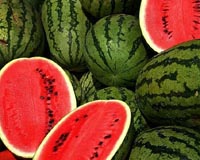 |
Sao Paulo, Brazil (SPX) Sep 08, 2009 For the first time in its 31-year history, the world's largest rally competition, formerly known as Paris-Dakar, will include in its 2010 edition a category in which competing vehicles will run on ethanol. The new category was introduced by the organizers at the request of Brazilian rally veteran and former Paris-Dakar winner Klever Kolberg, who will drive the first-ever flex-fuel vehicle to take part in the prestigious race next year - a Brazilian-made 2010 Mitsubishi Pajero Sport model equipped with flex-fuel technology, with support from the Brazilian Sugarcane Industry Association (UNICA). Kolberg, who finished first in the 1993 competition in the "marathon motorcycles" category, appropriately launched his 2010 renewable fuel effort at the world's largest fair dedicated to the sugar-energy industry, the annual Fenasucro, held in the town of Sertaozinho in the Brazilian state of Sao Paulo, the heart of Brazil's sugarcane industry. After a news conference at the UNICA booth, Kolberg held a one-hour autograph-signing session next to one of his training vehicles, on exhibit during the four-day event. "Professional sport has always been aligned with the business world and sustainability has been at the top of the agenda for quite some time. Today it is easier to get to any part of the world, and the Rally Dakar is proof of that. The question is what fuel will we use, and if we choose clean energy, the world thanks us," said Kolberg, who was also the first Brazilian ever to face the challenges of the Paris-Dakar race in 1988, when it was held mostly in Africa. "I left behind a comfortable situation, in which my previous rally team was widely supported, to pursue this project which I believe will be extremely important for the sport and the Dakar itself, given its worldwide presence. And I'm receiving a great deal of support from competitors who want the Ethanol Category to be a success," adds Kolberg. There is special meaning in supporting Kolberg's effort according to UNICA President, Marcos Jank. "Ethanol is already utilized by the Indy Racing League, which is one of the most important racing categories in the world, and it is being adopted by a variety of categories here in Brazil and around the world. It is certainly significant to see that trend now arriving also at the Dakar, without a doubt one of the great events of its kind in the globe," he said. Choosing ethanol for a challenge of the Dakar Rally's magnitude also makes sense from a technical point of view, according to UNICA's technology and emissions expert, Alfred Szwarc: "A rally race demands performance, toughness and reliability from a vehicle if it is to get to the finish line and be competitive, and flex-fuel technology is certainly capable of meeting these challenges with clear advantages over gasoline or diesel, especially from a sustainability perspective." First introduced in 2003, flex-fuel vehicles have become a resounding success in Brazil. In the first six months of 2009, flex models accounted for 93% of all new light vehicle sales. Cars equipped with flex technology run on pure ethanol, gasoline or any combination of the two. Currently, eleven automakers produced close to 70 flex-fuel models in Brazil: Citroen, Fiat, Ford, General Motors, Honda, Mitsubishi, Nissan, Peugeot, Renault, Toyota and Volkswagen. Share This Article With Planet Earth
Related Links 2010 Dakar Bio Fuel Technology and Application News
 Researcher using melons to create ethanol
Researcher using melons to create ethanolLane, Okla. (UPI) Sep 7, 2009 A U.S. Agriculture Department researcher in Lane, Okla., says he has discovered a way to turn watermelons into ethanol. Chemist Wayne Fish said while investigating how to enrich the health benefits of watermelon, he discovered the sugar in the juice from cull watermelons could be transformed into ethanol, The (Oklahoma City) Oklahoman said Monday. Fish said a fermentation unit ... read more |
|
| The content herein, unless otherwise known to be public domain, are Copyright 1995-2009 - SpaceDaily. AFP and UPI Wire Stories are copyright Agence France-Presse and United Press International. ESA Portal Reports are copyright European Space Agency. All NASA sourced material is public domain. Additional copyrights may apply in whole or part to other bona fide parties. Advertising does not imply endorsement,agreement or approval of any opinions, statements or information provided by SpaceDaily on any Web page published or hosted by SpaceDaily. Privacy Statement |